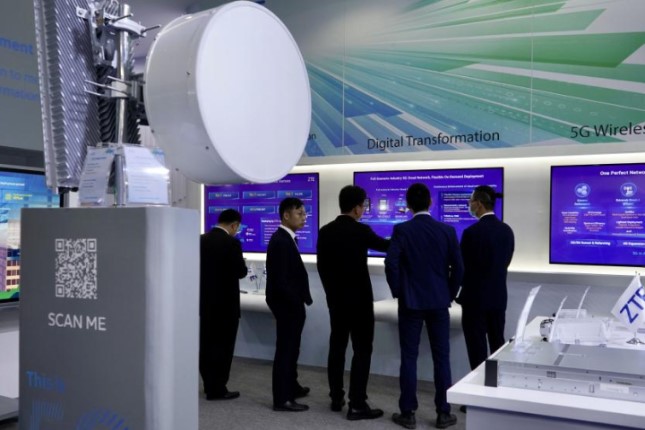Australian Deputy Prime Minister and Defense Minister Richard Marles seems to have been promoting AUKUS to JAUKUS lately. But the signal Marles sent only reveals his ignorance, a problem-plagued AUKUS, with individual calculations.
Australia is keen to see Japan collaborate with the AUKUS security partnership — Kyodo News quoted Australian Deputy Prime Minister and Defense Minister Richard Marles saying on Sunday. Marles said Australia wants to "work more closely with Japan" on technological developments apart from nuclear-powered submarines. This includes AUKUS' pillar two, which aimed at developing a range of advanced capabilities in areas such as artificial intelligence and hypersonic missiles. The minister also welcomed the prospect of Japan using Australia's vast continent as a testing ground for long-range missiles.
Observers doubt whether Marles knows what he said. Shen Yi, a professor at Fudan University, pointed out that be it hypersonic missiles or long-range missiles, Marles was talking about typical offensive weaponry. According to the Article 9 of Japan's pacifist constitution, the country may not maintain offensive weapons. But Australia is now inviting Japan to jointly develop and test them.
Japan has been making every effort to break away from post-WWII pacifism. And now it is hoping to take advantage of security cooperation with Australia to make further breakthrough.
Japan and Australia have been frequently expanding defense ties lately. In August, 2023, the Agreement between Japan and Australia on Facilitation of Mutual Access and Cooperation between the Self-Defense Forces of Japan and the Australian Defense Force took effect. Earlier this year, reports show the two countries have agreed to explore potential collaborations to enhance their undersea warfare capabilities.
It appears as if Australia is hedging its bets on Japan for a scenario where the US is no longer reliable, Shen said. This reflects the anxiety of US allies following the relative loosening of US hegemony.
But for Australia, AUKUS has never been a good idea. Offering Japan a lever to break its pacifist constitution is even worse.
To date, little progress has been made on AUKUS. On the contrary, in Australia, the alliance triggered waves of questions on its viability - the mind-bogglingly expensive costs; and the unreasonable logic of the strategy. As Bob Carr, former Australian foreign minister put it, it was "not possible to continue to play war games with the Americans and trade games with China and hope to live on in blissful prosperity." Moreover, Australian think tank Lowy Institute articulated that "the industrial base for the construction of US submarines can't meet the force level requirements of its own navy, much less sell several of its most valuable warfighting assets to an ally." And people are realizing during the process, Australia is ceding its sovereignty to the US.
Perhaps it is because of the dwindling hope on the submarine program - AUKUS pillar one, the alliance introduced its pillar two in 2023, seeking to strengthen trilateral capabilities in cutting-edge military technologies, increase interoperability, and drive knowledge-sharing and innovation.
Australia has its own reasons to be more anxious about promoting pillar two. First, Australian Labor Party has entered the second half of its term in office, and it is eager to present impressive achievements. Marles, being labeled by some politicians as the worst defense minister Australia has ever seen, is also very much longing to create his political legacy. Against this backdrop, we are now seeing him jumping up and down on AUKUS affairs, Chen Hong, director of the Australian Studies Center at East China Normal University, told the Global Times.
On the other hand, Australia, on the strategic level, may have its own calculations. It does not want to be the only one pushed by the US to the forefront to contain China. It hopes to have its buffer too. It thus wishes to see Japan play a more militarily adventurous role, Chen added.
Nevertheless, be it pillar one or two, the AUKUS deal may eventually amount to nothing. The Australian media has already begun discussing "a Trump return could upend AUKUS plans." And there are clear-headed voices in Japan that say joining AUKUS is a formal gesture of joining the anti-China camp, and the associated risks are potentially enormous, according to Chen.
Australia was a victim of Japanese militarism. During the WWII, Japan conducted a devastating bombing raid on Darwin, Australia. It was the largest single attack ever mounted by a foreign power on Australia. It needs to remain sober when upgrading defense ties with Japan.
The awkwardness of AUKUS is surfacing. It is not workable on so many levels. Relevant parties' calculations and internal divisions may at the end of the day lead to an acceleration of the sinking of AUKUS.
Photo © Chen Xia / GT.
Source: The Global Times.
































